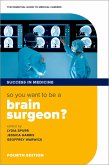What does it take to be a scientist? Equally important, what does it take to be
happy as a scientist? Drawing on thirty years of experience, Philip Schwartzkroin offers the budding scientist an invaluable glimpse into the day-to-day life of the researcher, filling a huge hole in the education of most would-be scientists--whether undergraduates or high school seniors. As Schwartzkroin points out, many of the most important things researchers learn as they hone their craft are not written down anywhere. And many of these insights come as a surprise to the na?ve and well-meaning student who somehow believes that "doing research" is an occupation that is substantially different from doing a job in "the real world." This book looks at the "job" of science. Starting with suggestions about how to decide whether you'd want to pursue such a career (and if so, how to get started), the book works through some of the obvious topics relevant to a research profession--how to write a paper, give a talk, construct a grant proposal. It also examines less obvious topics that are generally incorporated into a research education only by trial and error--"thinking" like a scientist, negotiating scientific politics, dealing with research ethics, and understanding social interactions. And the book includes many "real-life situations" that may confront the young scientist, along with the author's advice on how to solve these problems. Based on the author's long career in the laboratory and his rich experience mentoring trainees,
So You Want to be a Scientist provides information and insights that will help the young scientist make better decisions and choices. It will also be useful to teachers, counselors, and parents for its realistic look at the demands and requirements for success in a research career.
Dieser Download kann aus rechtlichen Gründen nur mit Rechnungsadresse in A, B, BG, CY, CZ, D, DK, EW, E, FIN, F, GR, HR, H, IRL, I, LT, L, LR, M, NL, PL, P, R, S, SLO, SK ausgeliefert werden.









